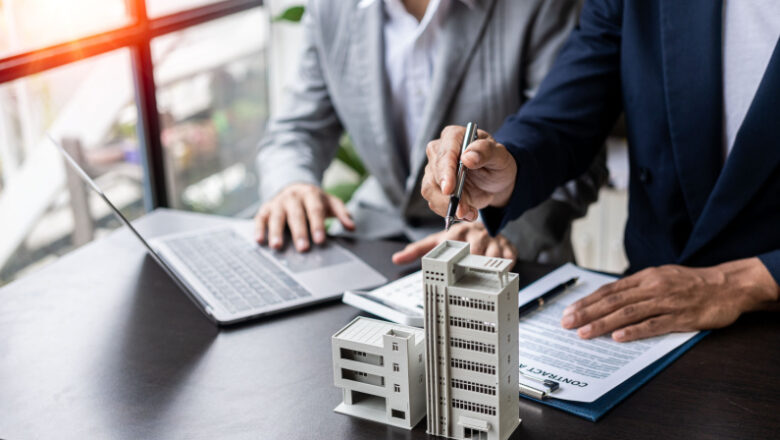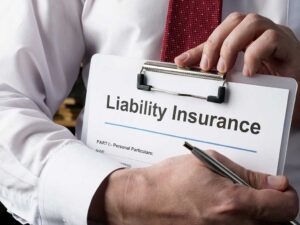Commercial property insurance is an essential safety net for businesses of all types. It protects a business’s physical assets, including buildings, machinery, and inventory, from certain hazards. Without this protection, a business is at risk of unexpected events that could cause operations to cease permanently. Entrepreneurs and businesses that realize they need to be prepared for the unexpected should definitely invest in this type of insurance.
Recognize the Need to Protect Your Business’ Assets
A business’s operations are largely dependent on the physical assets it has at its disposal. From office environments and equipment to raw materials and supplies, these assets help businesses operate. If an unexpected event causes these assets to be damaged or destroyed, the financial impact can be significant. Commercial property insurance companies don’t have to shoulder these costs alone. By shifting some of the financial burden to insurance companies, businesses can recover faster and start again with less disruption. Asset protection is more than a preventative measure; it’s a business strategy that supports sustainability and resilience.
Key Topics Covered by Commercial Property Insurance
Commercial property insurance typically covers a wide range of physical assets. This includes office furniture, computers, goods, machinery, and buildings that the business leases or owns. It often also covers outdoor advertising, landscaping, and equally important documentation. Some insurance policies also cover loss of income due to physical damage. This ensures that the business can maintain its cash flow during recovery. This comprehensive coverage makes it a flexible and practical tool for business owners.
Typical Perils and Risks Addressed
While the policy determines what coverage commercial property insurance provides, many plans focus on typical perils and risks. Examples include fire, theft, vandalism, and natural disasters such as earthquakes or storms. Some insurance policies also cover accidents caused by employees or outside contractors. However, it is important to remember that not all risks are necessarily covered. For example, if your business operates in an area prone to flooding, you may need to purchase additional insurance, especially for water damage. Choosing the right insurance coverage depends on understanding the risks your business faces.
Factors That Affect Commercial Property Insurance Rates
The cost of commercial property insurance depends on several factors. The location of your property is very important. Homes in areas prone to natural disasters or high crime rates generally have higher premiums. The type of property and its use also matter. For example, a warehouse full of flammable materials may cost more to insure than a standard office building. Other factors include the age of the building, existing security systems, and the overall value of the property insured. Understanding these factors can help business owners make informed decisions and potentially lower their rates through risk management.
Tips for Choosing the Right Insurance
Choosing the right commercial property insurance policy requires careful consideration. First, assess the unique needs and risks your business faces. To determine what level of coverage you need, you will need to carefully list your assets and their estimated value. Consider the plans of multiple insurers, not just the cost, but also the reputation and reliability of the insurer. Choose a policy that offers you flexibility, so you can adjust the coverage based on the size of your business or development. Finally, check the fine print. Knowing the exclusions and limitations will help you avoid unpleasant surprises during the claims process.
Claims Process: What to Expect
While filing a commercial property insurance claim can seem daunting, understanding the procedures can make resolving these issues easier. First, notify your insurance company immediately after the accident. Include all required documentation, including receipts, photos of the damage, and a comprehensive list of the affected items. Typically, your insurance company will send out a claims adjuster to assess the damage and determine the amount of compensation. While each insurer has its own claims procedures, having your documentation in order and a clear picture of your coverage will make things a lot easier.
Maximize the Benefits of Commercial Property Insurance
Regularly reviewing your policy is imperative to maximizing the benefits of your commercial property insurance. Make sure your coverage grows as your business grows. Update the value of your property regularly; consider adding additional coverage if necessary. Investing in preventative measures, such as installing security cameras or fire suppression systems, will not only protect your business but may also qualify you for a discount on your premium. To get the most out of your insurance, build a good relationship with your insurance company and stay up-to-date on changes to your policy.
Future Trends in Commercial Property Insurance
Commercial property insurance is constantly evolving to take advantage of new technologies and address growing risks. One of the most important trends is combining artificial intelligence with data analytics to more accurately assess risk. Climate change is also impacting the industry, as insurers offer tailored coverage and risk mitigation technology to businesses in disaster-prone areas. As cybersecurity concerns grow, many providers are expanding their offerings to cover data breaches and cyber incidents. By being aware of these developments, businesses can adapt and ensure they are adequately protected in the future.
FAQs
1. Do I need commercial property insurance if I rent a commercial property?
In fact, even when renting space, commercial property insurance is incredibly important. While the building itself is covered by the homeowner’s insurance, your business assets, including tools and inventory, remain your property to protect.
2. Does commercial property insurance provide business interruption coverage?
While some plans cover business interruption, this is not a given. If your business operations are temporarily halted due to property damage, this coverage can cover loss of revenue or operating expenses.
3. How often should I review my commercial property insurance?
It is wise to review your policy annually, or whenever major changes occur in your business, such as the purchase of new machinery or an increase in activity.
4. Can I lower my insurance premium?
There are indeed strategies to lower premiums. Risk-reducing investments in fire alarms, security systems, and home disaster relief often qualify for the discount.
5. What are the shortcomings of commercial property insurance?
Normal wear and tear, earthquakes, and water damage are typically not covered by regular insurance policies. You may need to purchase additional insurance for perils specific to your region.




